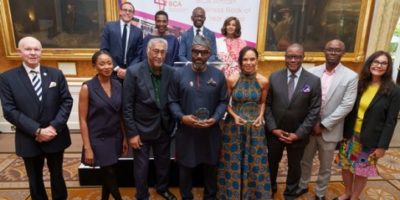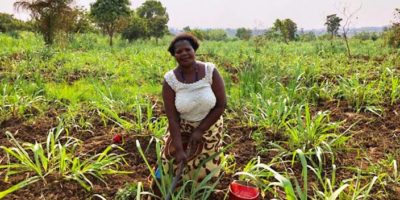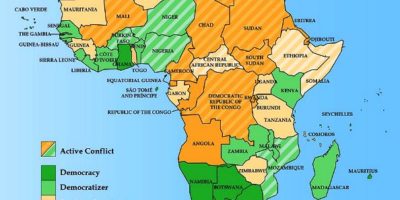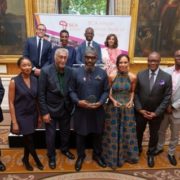The internet is making young people in Nigeria increasing more unsafe and vulnerable to abuses, a breakfast meeting on child cyber safety has revealed. The discussions anchored by Jos based Child Cyber Protection (C-C Pro) said while the internet has helped to create access to wide and diverse information helping to improve people’s knowledge of themselves and the world around them, it has created gaps in how they psychologically cope or understand the daily challenges they must relate with in the physical world.
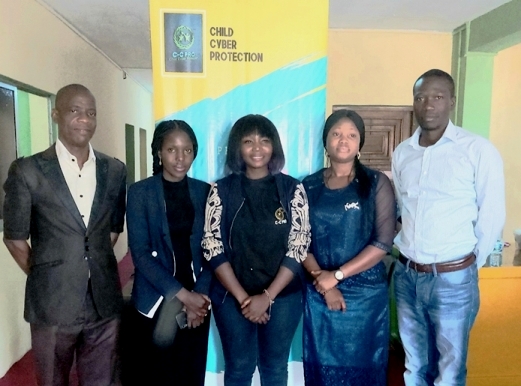

The discussants include a psychologist, sociologist, educationist, tech and media practitioners.
Mrs. Esther Amos Gyang, a sociologist currently working on a social behavioral change communication(SBCC) project called Breakthrough Action Nigeria, said while urbanization has helped to foster the growth of technology adoption in a way that has reworked how people live or communicate with others, it has not replaced the values that define society. Where internet may help break social walls and create a new vista of online relationships or ability to relate with a number of online communities, it is not necessarily able to replace the need for physical relationship. Increasingly, it is becoming clearer that as dependency on online communities or relationship deepens, there is a sense of emptiness when one is not with one’s phone. This is already affecting millions of our young people, said Gyang.
Speaking further, she said urbanization has reduced the number of our families sit-together to communicate which is made worse by the way we design our homes nowadays where parents have their rooms in different wing of the house and children in another wing thereby creating a distance and gap in physical communication. That gap is filled by connected mobile devices which have gradually taken over as companions to both children and their parents.
“So you find that children are more connected to their phones than to their parents or other siblings and are vulnerable to emotional abuses online than in the real life,” added Gyang.
She noted that because of the increase use of technology, the hitherto robust family and communal kind of life we used to have has been eroded, adding that “the phones we use have, sadly, become our companion more than our family members.”
For Kat Yilwada, a psychologist consulting for Achieving Health Nigeria Initiative, physical bonding with communication between parents and their kids is important and will make the children confident in opening up and discussing their issues instead of some online friend miles away. She said physical and emotional attachment is key to raising kids; as such parents must make deliberate efforts to bond with their kids. The reality however is that with increasing access to connected devices and millions of online communities; digital bonding with all its inherent risks is becoming a norm.
Like Gyang, Yilwada said siblings need to create time for each other or else many tend to feel more comfortable discussing their personal issues, challenges, pains, and successes among others with their online friends than with their siblings. “The problem is that depression or a deep sense of isolation could arise when their online friends become unreachable or absent as at the time they wish to communicate with them,” said Yilwada.
She agreed that technology has helped to break biases or barriers that existed raging from religion, culture, and ethnicity. She also agreed that the internet has promoted easy communication and the psychology of relating easily with others, the danger is such kids, particularly minors, become very vulnerable to emotional manipulation by the other person online. Yilwada argued that parents should be mindful of the kinds of friends their children interact with online and these interactions carry a lot of psychological import.
She cited the case of a minor who committed suicide because the adult she was friends with online cut off communication with her when she failed to provide what he demanded of her. This led her to depression because there was no physical communication with anyone for her to share her issues with and she eventually committed suicide.
Akintaro Ponmile Lekan, educationist, proprietor of Sureq Model College and founder, International Foundation for Improved Livelihood and Sustenance, noted the negative component of the internet could spell doom for all stakeholders. He also noted that the level of confidence people have with ‘strangers’ they meet online can be worrisome. He gave an example with himself having met his wife, an American living in the US. He said despite the opposition by her mother on why she would agree to marry a total stranger from another continent, the lady trusted him because they had built trust overtime. “Imagine if I was a negative influence on her.”
When some parents stop their children from leaving the house, or do not encourage them to participate in outdoor activities, they unintentionally contribute to making the children unwholesomely depended on phones and other technological devices thereby making them vulnerable to online negative influences, said CEO and Co-Founder of C-C Pro, Delmwa Gogwim.
Lekan insisted that the internet has brought to our youngsters ‘family members’ that are not relations by blood and that these youngsters trust them more than their real parents. “This is dangerous! What happens if the internet friend is a negative influence on this teen?”
He expressed concern that increasingly, “the internet friend has more time for the child than his or her real parents. If parents do not devote more time to relate, interact and communicate with their wards, the children are more likely to live the kind of life dictated to them by their ‘internet friends.”
For Olusegun Oruame, CEO of Qitech Technologies, society must wake up and stop living in denial. The internet has become a part of 21st existence and it defines urbanisation, education and parenting among others. All stakeholders, parents, schools, and government have a role to ensure that the inherent dangers are resolved as they unfold.

